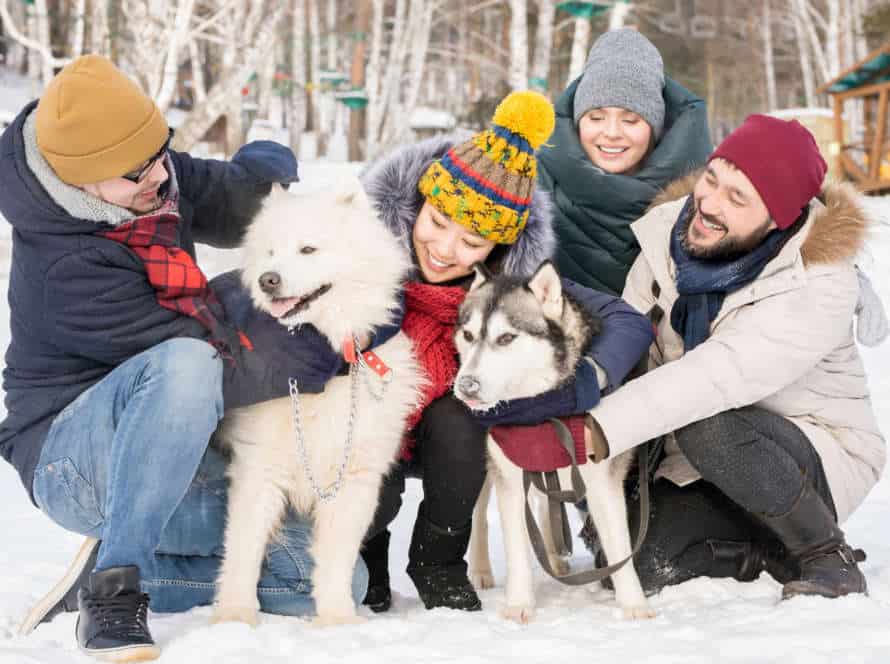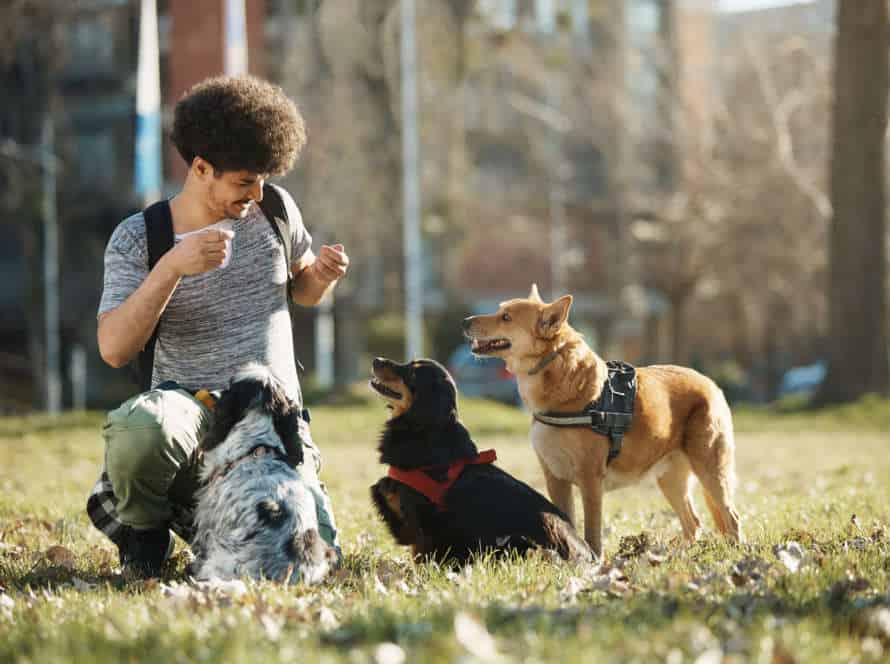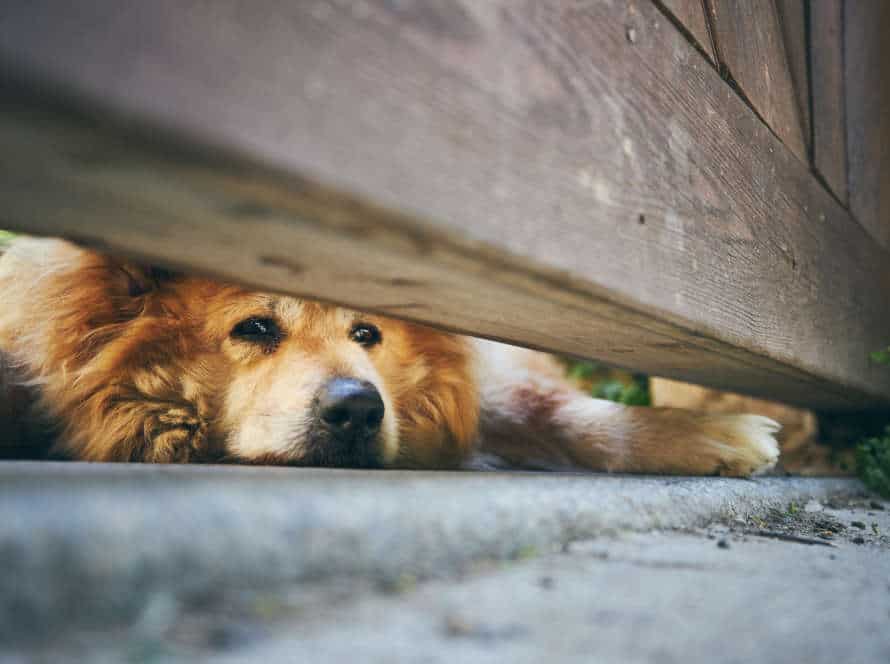Rare Dog Breeds: Are They Right for You?
Choosing a rare breed of dog is an important choice. They have special features, but are they perfect for you? Here are some things to think about:
- Temperament: Rare breeds may have different personalities compared to other breeds. Do some research to see if it fits your lifestyle.
- Availability: It might be tough to locate a reputable breeder or adoptable in your area. This means higher costs and more waiting.
- Upkeep: Rare breeds may need special grooming and health needs that could be hard to take care of.
- Compatibility: Rare breeds may need special physical needs that make them unsuitable for homes with small children, other animals, or people with allergies.
Pro-tip: Talk to a vet and a dog trainer before adopting a rare breed. This will help you make the right decision for you and your family.
Understanding Rare Dog Breeds
Rare dog breeds can be a wonderful addition to any family. They bring unique traits and personalities not found in other breeds. Before you commit to one, it’s important to know what owning a rare breed dog entails. Let’s take a closer look and find out!
What are rare dog breeds?
Rare dog breeds possess a population lower than popularly known breeds. These can be tricky to locate and expensive to buy, needing special attention or instruction.
- Otterhound: Known for its powerful nose, friendly nature, and fluffy look.
- Finnish Spitz: Recognizable bark, fox-like shape, and hunting ability.
- Azawakh: From West Africa, slender and tall, for hunting and guarding.
- Cesky Terrier: Soft, wavy fur, used for catching vermin in Czech Republic.
Before deciding on a rare breed, examine their specific needs, character, and how to properly look after them. These breeds may need more effort, endurance, and resources than usual, but can make rewarding pets.
Differences between rare and popular breeds
Popular dog breeds have been bred and cared for by humans for years. But rare dog breeds are often disregarded and not given enough credit. Here are the differences between these two types of breeds:
- Popularity: Popular breeds are well-known and easily recognized. Rare breeds may not be as familiar or seen in the media.
- Availability: Popular breeds are found easily from breeders or rescues. Rare breeds may be hard to locate and require additional effort to get.
- Health Issues: Popular breeds have inbreeding problems and so can be prone to certain health issues. Rare breeds, however, are usually healthier due to their more diverse gene pools.
- Temperament: Popular breeds usually have certain personalities and temperaments. Rare breeds, however, can be more unpredictable due to their particular breeding history.
- Pro tip: Before deciding on a breed, research both popular and rare breeds. Don’t forget about rare breeds – you could be pleasantly surprised!
Benefits of choosing a rare breed
Choosing a rare breed of dog can offer you several exciting benefits. For example, you will have an extraordinary companion and help preserve a rare species. Rare breeds often have distinct traits, tempers, and physical characteristics. This makes them stand out from the crowd and capture everyone’s attention.
Plus, you can support conservation efforts to keep rare breeds from extinction. As these breeds usually have low breeding numbers, your adoption or purchase can be a great help for sustainability.
But, it is important to do some research first. Understand the requirements and potential health issues of the rare breed you choose. Make sure it is a suitable fit for your lifestyle before you commit.
Researching Rare Dog Breeds
Maybe you desire to have a unique pup in your abode? Consider a rare breed of dog! You’ll join a special club. But, before you get one, make sure it’s the perfect fit for your lifestyle.
Here’s some research to do:
- investigate its needs
- behavior
- health issues
Also, look into the breeders and if they have a good reputation. Finally, evaluate the costs of owning a rare breed.
Reliable sources for finding rare dog breeds
Research is needed to find rare breed dogs. Not all sources give true info. It’s best to search for trustworthy sources for accurate details about the breed’s behaviour, care needs and health issues. Here are some reliable places:
- Breed clubs and associations – Most rare dog breeds have associations that provide info about the breed and its care.
- Local breeders – Get in touch with local breeders to learn more, meet dogs and possibly get a puppy or an adult dog.
- Veterinary professionals – Ask your vet for help understanding the breed’s health issues and special care requirements.
- Online forums and groups – Join online forums and groups that talk about rare breeds. This can give a lot of info and link you with other breed lovers.
Remember, research the breed’s needs before deciding if it’s right for you and your lifestyle.
Learning about the breed’s temperament and needs
Think twice before getting a rare breed of dog. Research their temperament and needs to make sure they suit you and your family. Here’s what to consider:
- Temperament: Each breed has its own personality and energy level. Check if it matches up with what you want.
- Health Issues: Rare breeds might have higher chances of genetic issues. Check these risks out before adoption.
- Training Needs: Not all breeds require the same amount of training, socializing and exercise. Know what your pup needs.
- Lifestyle Compatibility: Consider your home, family and work commitments. Make sure you can provide a suitable environment and attention.
Do research and make an informed decision if a rare breed is really for you.
Determining if the breed is a good match for your lifestyle
Before you adopt a rare dog breed, you need to figure out if it’s a good fit for your lifestyle. Here are some things to consider:
- Activity level: Some rare breeds, like the Finnish Spitz, need lots of exercise and playtime. Others, like the Lowchen, are more chill.
- Grooming: Certain rare breeds, like the Bergamasco, have coats that need daily grooming. Others, like the Xoloitzcuintli, have short hair that needs minimal upkeep.
- Training: Some rare breeds, like the Azawakh, are independent and can be hard to train. Others, like the Harrier, want to please and do well with training.
- Health: Rare dog breeds may have special health needs that need specialized care. Look into any breed-specific health issues and make sure you can provide the needed care.
Be sure to research any breed before adoption, to make sure it fits your lifestyle and will be a great addition to your family.
Caring for Rare Dog Breeds
Caring for rare dog breeds? Know their needs! Unique traits and loyalty, plus unconditional love – they’ll give you these if you invest time and energy into their care.
Here’s an overview of the basics behind looking after rare dog breeds. Enjoy!
Unique health needs of rare dog breeds
Rare canine breeds have exclusive health demands that pet owners should be mindful of to keep them content and healthy. Examples are:
- Xoloitzcuintli: Allergies of skin and heat intolerance can be seen more in this breed. They do great in cooler climates and require regular exercises to retain their weight.
- Basenji: High prey drive and eye illnesses like progressive retinal atrophy are risks. Becoming overweight is also probable and a high-protein diet is necessary.
- Azawakh: Genetic issues like progressive retinal atrophy and hip dysplasia are more common in Azawakhs. They also have high energy and need space to run and play.
- Thai Ridgeback: Hip dysplasia and skin infections can be seen in this breed. Furthermore, they are muscular, thus, require lots of exercise and a high-protein diet.
By being familiar with these unique health needs, pet owners can guarantee their rare breed pets stay healthy and lead a content and long life.
Essential training techniques for rare breeds
Caring for rare dog breeds can be a gratifying, yet demanding, task. Critical training techniques are needed to ensure these special breeds flourish in their new homes. Here are some training tips:
- Start socializing early to introduce them to many people and other animals.
- Teach basic obedience like ‘sit’, ‘stay’, and ‘come’ to keep the pup under control.
- Stick with one set of commands and reinforcement to be consistent.
- Positive reinforcement with treats or praise is great for good behavior.
- Exercise is vital to keep rare breeds active, content, and healthy.
If adopting a rare breed, research their unique needs. Be ready to put in time and effort into their training and care.
Maintaining appropriate socialization for a rare dog breed
To help rare dog breeds become comfortable with other people and animals, adequate socialization is required. Here are some tips for socializing a rare breed:
- Begin early. Puppies are more open to socializing and can learn to be around other people and animals easily.
- Give your dog different environments, noises, and experiences so they can feel more relaxed in different situations.
- Use positive reinforcement methods such as treats, compliments, and playtime to promote socialization and reward good conduct.
- Allow your rare dog breed many occasions to interact with other people and pups in controlled settings.
Remember that rare breeds of dogs may have unique personality traits and behaviours that need patience and understanding. With effort, time, and persistence, you can help your rare breed of dog become a happy, well-socialized companion.
Pro tip: If you are unsure how to socialize your rare breed, seek advice from a professional dog trainer or behaviourist.
Rare Dog Breeds and the Breeder Selection Process
Bringing a rare breed pup home can be thrilling! But, you need to be careful when choosing a breeder. Different countries have different rules on the breeding of rare dogs. Ensure the breeder is reliable and has the proper certifications.
What does the breeder selection process involve? Let’s take a look.
Finding a reputable breeder
When it comes to rare dog breeds, getting a healthy & well-bred pup is key. Follow these tips for finding a reputable breeder:
- Search for members of national or local dog breed clubs.
- Look for referrals from other dog owners or breeders.
- See health certificates for the breeding dogs & their offspring.
- Ask about the breeder’s health guarantees & return policies.
- Visit the breeder’s facility to observe the living conditions of the dogs.
- Observe the temperament of the breeding dogs & their puppies.
- Get a contract outlining the sale & responsibilities of buyer & seller.
By following these guidelines, you can find a reputable breeder & get a healthy & well-bred rare dog breed.
Setting expectations for the purchasing process
Setting expectations for buying rare dog breeds is key to make sure you select a responsible and reliable breeder.
Do research on the breed, its characteristics, temperament, and health issues.
Find a reputable breeder registered with a kennel club and sticking to ethical breeding.
Ask the breeder about their program, health tests, socialization of puppies, and post-sale support.
Be ready to pay more as it takes time and resources.
Wait as there is usually a long waiting list.
And remember owning a rare breed comes with its own challenges and may not be suitable for all owners.
Understanding the importance of certification and documentation
Certification and documentation are essential when selecting a rare dog breed. They help to guarantee the breeder is honest and the pup is healthy. Here’s why they matter:
- Health certification: This document verifies the pup has had screenings for common health problems associated with the breed, like hip dysplasia or eye issues. It also certifies vaccinations, neutering/spaying, and de-worming.
- Pedigree: The pedigree certificate proves your pup’s family tree, providing traceability and confirmation of breed. It assures the pup looks and acts as per the breed standards.
- Registration papers: These papers display that the dog is registered with a respected dog club or governing body, like the AKC or UKC. It helps uphold breed standards and checks the credibility of the breeder.
These documents will help you choose a dependable and approved breeder selling certified rare dog breeds, making sure you invest in a healthy pup that will hopefully have a long and joyful life with you.
Integration of a Rare Dog Breed into Your Life
Thinking of integrating a rare dog breed into your life? It can be an exciting experience, but it requires research and dedication! You must consider how the rare breed will fit into your lifestyle and how to care for it properly. Here we explore the considerations of bringing a rare dog breed into your life.
Adjusting to life with a rare dog breed
Bringing a special breed pup home can be exciting, but it needs patience, research and a lifestyle change to fit them in. Here are few tips for a smooth transition:
- Do your homework: Get to know the breed’s conduct, temperament and health issues.
- Socialize: Get them used to different people, places and pets.
- Space: Have an area they can go to if they feel stressed.
- Be patient: Rare breeds take more time to train and adjust than common ones.
- Train: Teach them the basics – like come, sit and stay.
- Lifestyle: Make sure you can satisfy their exercise, feeding and healthcare needs. A happy pet is a loved one.
- Bonus: Contact a breeder or shelter for help integrating a rare dog.
Unique challenges of owning a rare dog breed
Getting a rare dog breed brings unique challenges that you must consider before deciding to bring it to your life.
For instance:
- Availability is limited. Rare breeds are not always easy to find, so you may have to drive far for a reliable breeder.
- Cost is high. Rare breeds tend to be more expensive than common ones.
- Information can be hard to find. With few breeders and owners, it’s tough to get reliable info about training, health and behavior.
- Socialization is limited. Rare breeds don’t have many chances to socialize with other dogs, which can cause issues with behavior.
However, if you are willing to put in the extra time and money, owning a rare dog breed can be a great experience.
Making the most of your time with your rare dog breed
If you are considering owning a rare pup, consider these tips:
- Do research on their breed to see if it’s right for you.
- Plan for their needs; food, exercise, mental stimulation.
- Socialize your pup from a young age.
- Have patience. Integrating a rare dog breed requires dedication, but it can be rewarding.
You and your canine can have a happy and healthy bond.
Frequently Asked Questions
1. What are rare dog breeds?
Rare dog breeds are breeds of dogs that have a small population, either worldwide or in a specific region. These breeds may not be readily available and may require research and special arrangements to obtain.
2. Why would someone want a rare dog breed?
Some people may want a rare dog breed because they are drawn to their unique characteristics or appearance. Others may want to support the preservation of a dwindling breed. Additionally, some rare breeds may have specific traits that make them ideal for certain lifestyles or needs.
3. What are some challenges of owning a rare dog breed?
Owning a rare dog breed can come with challenges. These breeds may have specific health concerns, temperament issues, or require specialized training. It may also be difficult to find a reputable breeder and socialize the dog due to the limited population.
4. How can I find a reputable breeder for a rare dog breed?
To find a reputable breeder for a rare dog breed, research the breed and locate breed-specific clubs or organizations. These groups can provide insight into reputable breeders and ensure that the dog comes from a responsible breeding program. Additionally, ask for health clearances and references from the breeder.
5. Are rare dog breeds more expensive?
Rare dog breeds may be more expensive due to their limited availability and the cost of maintaining a breeding program for a small population. Additionally, some rare breeds may require specialized care or have health concerns that can increase veterinary costs.
6. Is a rare dog breed right for me?
Whether a rare dog breed is right for you depends on your lifestyle and needs. It’s important to research the breed thoroughly, understand any potential challenges, and ensure that you can provide the necessary care for the unique characteristics and requirements of the breed.







